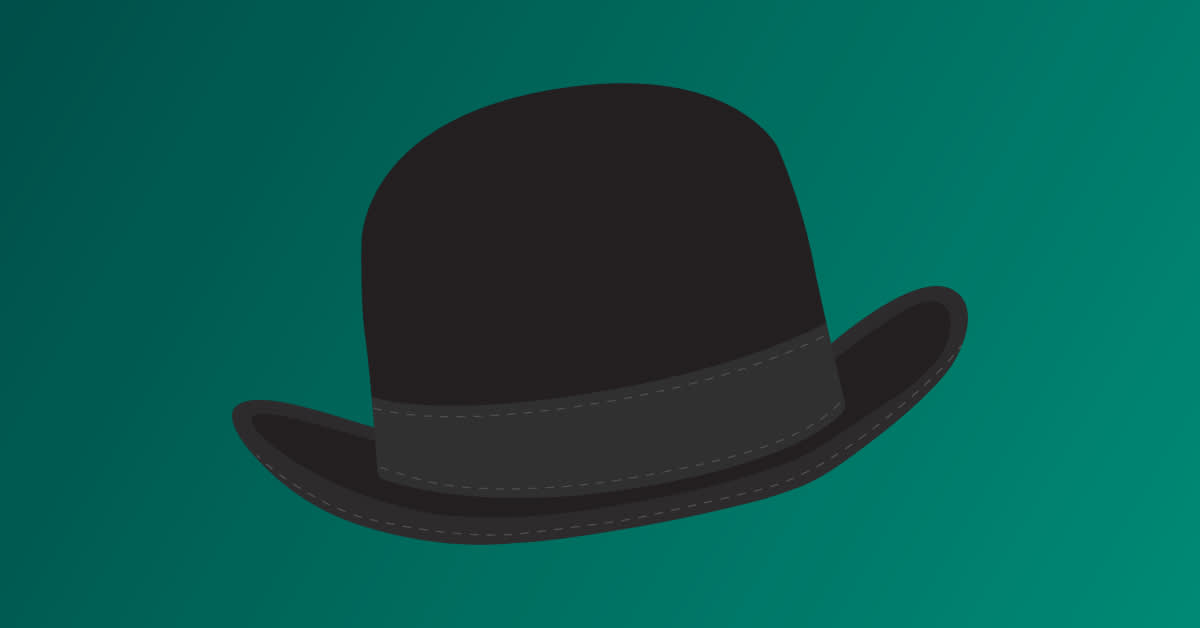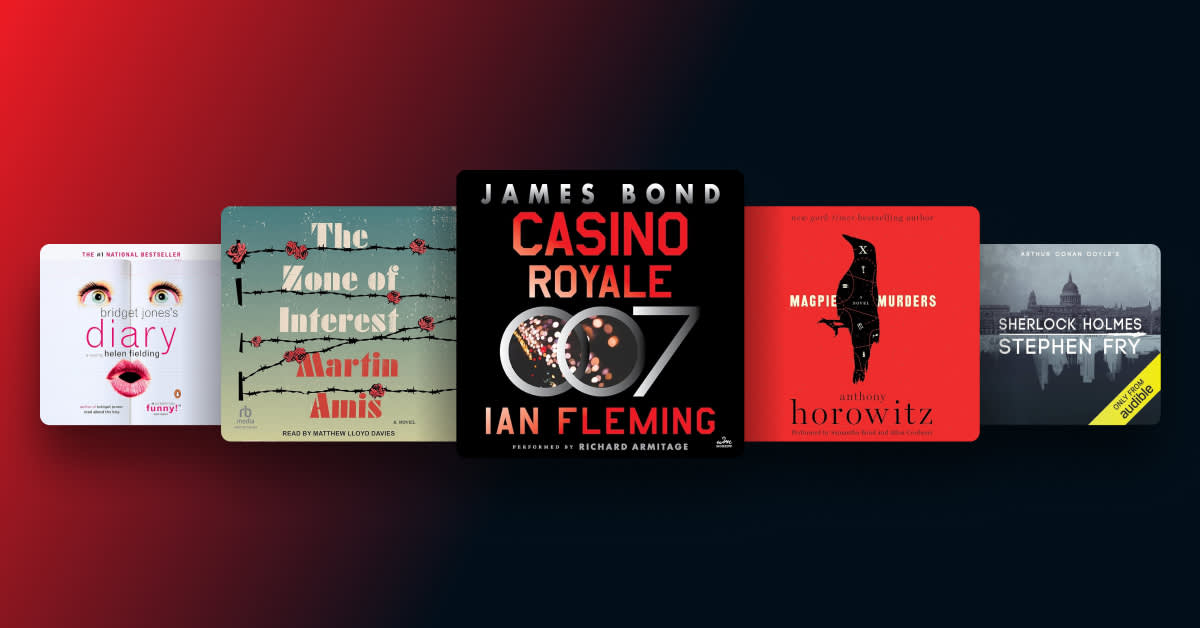"Good old Watson! You are the one fixed point in a changing age."
With these words, Sherlock Holmes praised his long-time roommate, biographer, friend, and associate, Dr. John H. Watson, in the 1917 short story "His Last Bow." And certainly, Holmes’s appraisal rings true for countless readers and listeners, as Watson remains a steadfast favorite of detective literature.
Though it is no exaggeration to say that Holmes and Watson are a legendary, that "fixed point" remark is not quite as accurate as it once was. While Watson has remained Holmes's faithful companion and "helpmate" since his debut in A Study in Scarlet more than 130 years ago, he, like Holmes, has undergone many revisions and alterations in that time. He's been played straight and played for laughs, he's sometimes been revealed as the true brains behind his partnership with Holmes, and his character has been reinvented time and again, imagined as different genders, races, and even species.
Take, for example, one of his latest reincarnations in the Audible Original Moriarty. Here, he is brilliantly played by award-winning actor Adam Godley, who portrays Watson in an alternate telling where Professor James Moriarty isn’t quite the evil mastermind he’s purported to be. In this iteration, Dr. Watson must contend with and work alongside not one but two obsessive geniuses—Holmes and Moriarty, the latter of whom was unjustly accused of killing his beloved.
No matter how he’s been characterized or what shape he’s taken on over the years, Watson remains a fascinating character, both for the dynamism he brings to Holmes’s investigations and for a personality and set of skills all his own. Here, we do our best to distill all of that analysis into the most important points that fans need to know about literature's most famous sidekick.
Who is Doctor John Watson?
Sir Arthur Conan Doyle first created the character of Watson to narrate his mystery stories and to serve as a relatable everyman beside his legendary detective’s otherworldly insight and abilities. Yet the original Sherlock Holmes books give us little information about Watson's origins. We know that his father is dead and his deceased brother struggled with a drinking problem. A Study in Scarlet begins by informing us that he served as an army doctor in Afghanistan, where he was wounded badly enough to be sent back to England. With few prospects and less money, he ran into an old friend, who introduced him to Sherlock Holmes, a consulting detective—"the only one in the world," claims Holmes—in need of a roommate to help cover rent. Fascinated by Holmes's eccentricities, Watson started writing down their adventures for publication. And so, the legend of Sherlock Holmes and John Watson was born.
In The Sign of the Four, Watson married one of Holmes's clients, Mary Morstan, who eventually died and left Watson a widower. Their relationship is mired in mystery, as Arthur Conan Doyle infamously grew to loathe Holmes and increasingly neglected his continuity. If you try to figure out how long Watson remained married versus how long he was single, you'll likely find that the dates indicate he must have been married several times rather than just the once—but more on Watson's woman chasing later!
Despite such mysteries, there are a couple of other things we know about this character for sure—one, that Doyle originally wanted to name him Ormond Sacker, and two, that we are all very grateful he settled on the name "John Watson" instead.
What are Dr. John Watson’s finest moments?
By design, Watson is very much a supporting character in Sherlock Holmes's stories. Though some adaptations give him a larger role, the original stories almost allow him to fade into the background, allowing Holmes to shine instead. Still, he occasionally gets the chance to seize the spotlight. Here are a few of his scene-stealing moments.
The Final Problem: This one is notable for two reasons. First, Watson agrees to accompany Holmes across Europe despite Holmes making it clear just how dangerous the trip will be. And two, Watson writes this story specifically to counteract the anti-Holmes libel being hurled by the brother of the late, un-lamented Moriarty. It’s a gem that showcases Dr. Watson’s loyalty, remaining a true friend to the last.
The Devil's Foot: After Holmes recklessly exposes them both to a deadly toxin, Watson overcomes the powder's effects to drag an insensate Holmes out into the open air, saving his life. Holmes, at once grateful and contrite, can't thank Watson enough for the timely rescue.
His Last Bow: In this intriguing tale set in 1914, an aging Watson comes to the aid of his dear friend once again, helping him take down a German spy on the eve of World War I. It's clear that Holmes and Watson have not seen each other in some time, as Holmes has been undercover in America, but they have no trouble working together, just like old times.
Moriarty: The Devil's Game: In this Audible Original podcast, Watson serves as the voice of reason to not only Holmes but to Moriarty as well, forcing him to reconsider the cost of his desperate quest for truth and justice. But will Moriarty listen?
Who are Dr. John Watson’s friends and allies?
Neither Holmes nor Watson are what you'd call sociable, but they do pick up a few friends along the way. Here are the most notable.
Mary Morstan: As previously mentioned, Watson falls in love with Mary very quickly, and by the end of The Sign of the Four, they are engaged, much to Holmes's chagrin. They seem to have a happy marriage, predicated largely on Mary's acceptance that her husband will always go running back to Holmes whenever the great detective calls.
Mrs. Hudson: Holmes and Watson's put-upon landlady, Mrs. Hudson looks after the young men, tolerates Holmes's rudeness and untidiness, and brings their meals—when Holmes can be bothered to eat, that is.
Inspector Lestrade: Scotland Yard detective Lestrade starts out as very dismissive of Holmes's skills. Yet as the stories progress, he eventually comes to appreciate his assistance.
What are Dr. Watson's skills and abilities?
It goes without saying that Watson cannot match Holmes in terms of observational abilities. So what does Dr. John Watson bring to the table?
There is, of course, his medical training, which is very handy when your best friend's job puts you in contact with dead and wounded people on the regular. In one story, we find out Watson once played rugby, and in another, Watson states that he has "an experience of women which extends over many nations and three separate continents"―in other words, Watson is a real ladies' man!
Perhaps most importantly, though, he serves as an anchor for the unpredictable, risk-taking Sherlock Holmes. Watson spends years helping him reduce and then eliminate his use of cocaine, and he provides a much-needed voice of inspiration and reason whenever Holmes gets stuck. It's not for nothing that Holmes, in The Hound of the Baskervilles, calls him "a conductor of light."
The best Dr. Watson quotes
Technically, most of the Sherlock Holmes canon counts as Watson quotes, since he narrated all but a handful of the original stories. But here are some words that really stand out.
"'Do you know, Watson,' said Holmes as we sat together in the gathering darkness, 'I have really some scruples as to taking you to-night. There is a distinct element of danger.'
'Can I be of assistance?'
'Your presence might be invaluable.'
'Then I shall certainly come.'" ―The Speckled Band
"I believe that I am one of the most long-suffering of mortals; but I'll admit that I was annoyed at the sardonic interruption. 'Really, Holmes,' said I severely, 'you are a little trying at times.'" ―The Valley of Fear
"It was worth a wound—it was worth many wounds—to know the depth of loyalty and love which lay behind that cold mask. The clear, hard eyes were dimmed for a moment, and the firm lips were shaking. For the one and only time I caught a glimpse of a great heart as well as of a great brain. All my years of humble but single-minded service culminated in that moment of revelation." ― The Three Garridebs
Eileen Gonzalez is a freelance writer from Connecticut. She has a Master's degree in communications and years of experience writing about pop culture. She contributes to Book Riot and Foreword Reviews.






